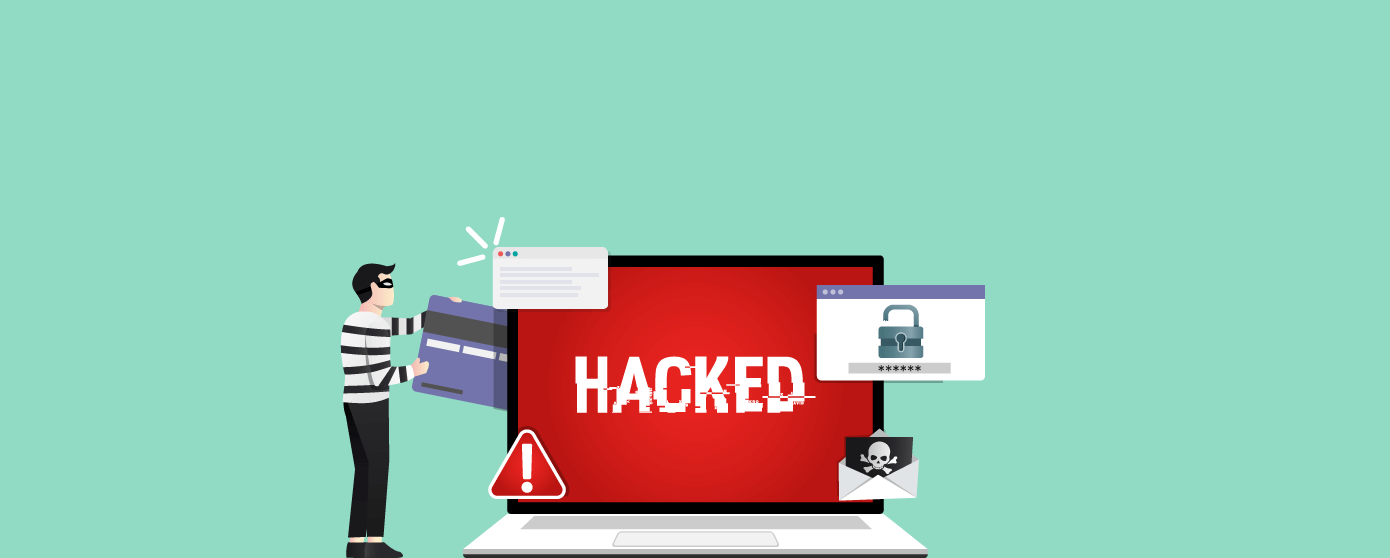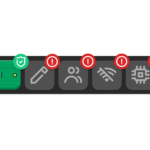To secure your small business website from hackers, frequently update software and enforce strong passwords. Implement robust security protocols to enhance protection against cyber threats.
Securing your small business website is critical to protecting your digital presence and customer trust. Hackers constantly evolve their techniques, making it essential for website owners to stay proactive in defense strategies. Cybersecurity should top the list of your digital priorities, considering the severe implications of data breaches.
A fortified website acts as the first line of defense against these relentless cyber-attacks. In the following paragraphs, we’ll explore practical steps any small business can take to bolster their website’s security. These measures include regular updates, strategic password policies, the use of security-enhancing plugins or services, and continuous monitoring for any suspicious activity. By embracing these strategies, businesses can create a resilient digital fortress, effectively keeping hackers at bay.

Credit: kinsta.com
Rising Cybersecurity Threats To Small Businesses
Small business websites often attract hackers due to their less rigorous security measures. Thieves view these sites as low-hanging fruit with valuable data ripe for the taking. A successful breach can lead to serious consequences, including data loss, financial damage, and reputational harm. Protecting your business from cyber threats is now more pressing than ever before.
Foundational Website Security Measures
Maintaining up-to-date software and plugins is vital for website security. Outdated versions can open doors for hackers. By updating, you patch security flaws and protect your site. Make it a regular task to check for updates.
Implementing an SSL certificate ensures data between your website and users is encrypted. This encryption makes it tough for hackers to intercept sensitive information. Most web hosts offer easy SSL certificate integration.
Strong Authentication Protocols
Protect your small business website with multi-factor authentication (MFA). This system adds a powerful layer of security by requiring multiple forms of verification before granting access. Users may need to enter a password plus a code sent to their phone.
Strong password policies are crucial too. Use complex passwords that mix letters, numbers, and symbols. Change passwords regularly to keep your site safe. Never reuse old passwords. Teach your team about these best practices to ensure everyone contributes to website security.
| MFA Components | Password Policy Tips |
|---|---|
| Password + Code | Mix Characters |
| Security Questions | Regular Changes |
| Biometric Verification | Unique, not reused |

Credit: www.hostgator.com
Proactive Monitoring And Detection
Small business websites are prime targets for hackers. Firewalls act as a shield, blocking unauthorized access. Pairing them with anti-malware tools is smart. These tools scan for harmful software. Think of firewalls as a locked door. Anti-malware tools are like guards, checking for threats.
It’s equally important to monitor your site regularly. This means watching for odd site behavior. Quick detection of such activity can stop hackers. Remember, even small changes can signal a breach. Tools and plugins are available for constant vigilance. They notify you of potential issues. Acting fast can protect your data and clients.
Employee Training And Awareness
Employee training boosts a business’s defense against cyber threats. Regular security workshops ensure that employees recognize risks. By teaching them about phishing, password security, and safe browsing habits, you’re building a human firewall.
Encouraging staff to report suspicious activities helps prevent breaches. Security should be everyone’s job, not just the IT department’s. Creating posters and reminders can keep security at the forefront of their minds. Empower employees with the right tools and knowledge to keep your website safe.
A culture of security starts from the top. Management must show its commitment to keeping data protected. Rewarding employees who show exemplary security practices can motivate others. Remember, a secure business is a successful business.
Creating A Response Plan For Security Breaches
Formulating an Incident Response Strategy is a critical step for small business website security. Having a solid plan ensures you’re prepared if hackers attack. Start by outlining clear steps to identify the breach, contain it, and recover data. For each type of potential incident, write down specific actions.
Your plan should include immediate notification to IT staff and relevant authorities. Effective communication channels must be in place to alert customers and stakeholders. Be sure to review and update the response plan regularly.
Backups and contingency planning are also essential. Create regular backups and store them securely in multiple locations. This minimizes data loss and aids in quick recovery. Test your backups frequently to ensure they work when needed. Document roles and responsibilities for restoring services to minimize downtime.

Credit: www.indusface.com
Conclusion
Securing your business website is non-negotiable. Start implementing robust security measures now. Remember, proactive steps deter hackers effectively. Strengthen passwords, update regularly, and educate your team. Make cyber safety the core of your digital strategy and keep your small business thriving.
Stay vigilant, stay safe.











